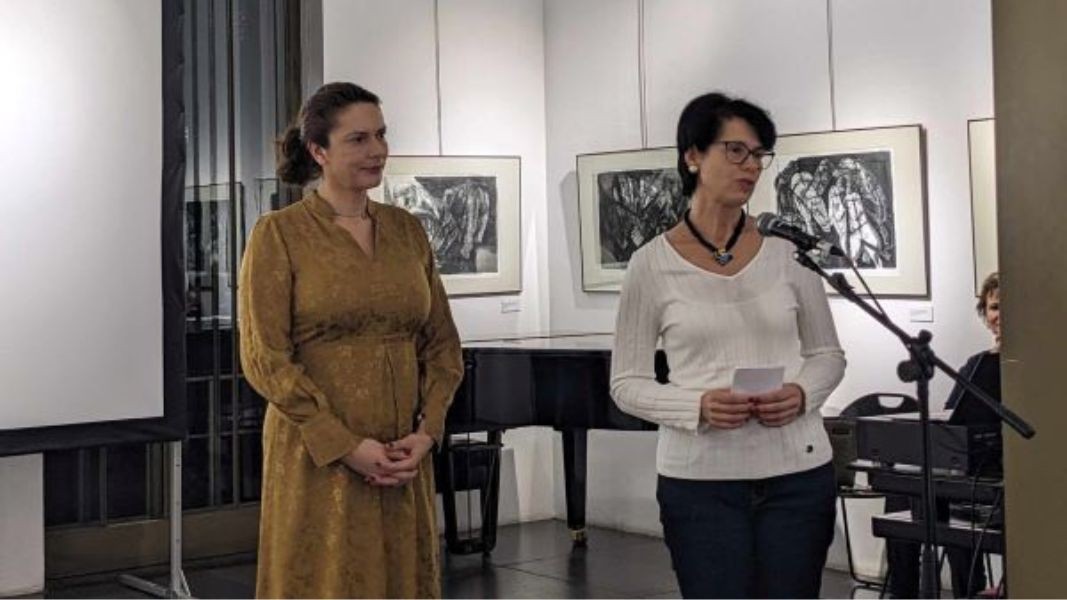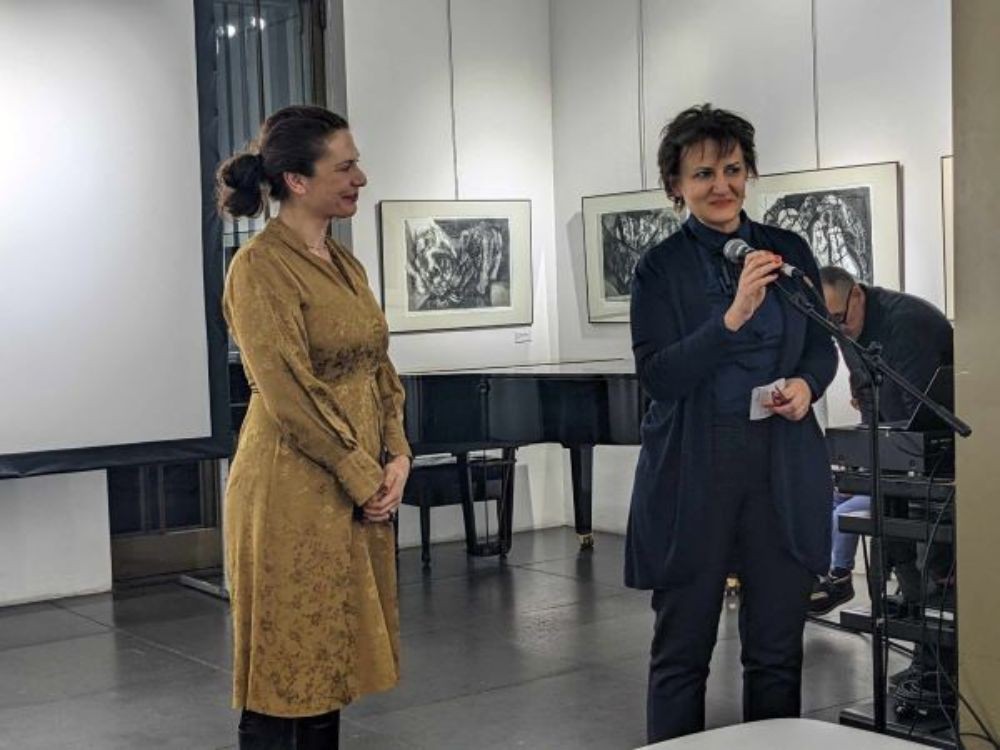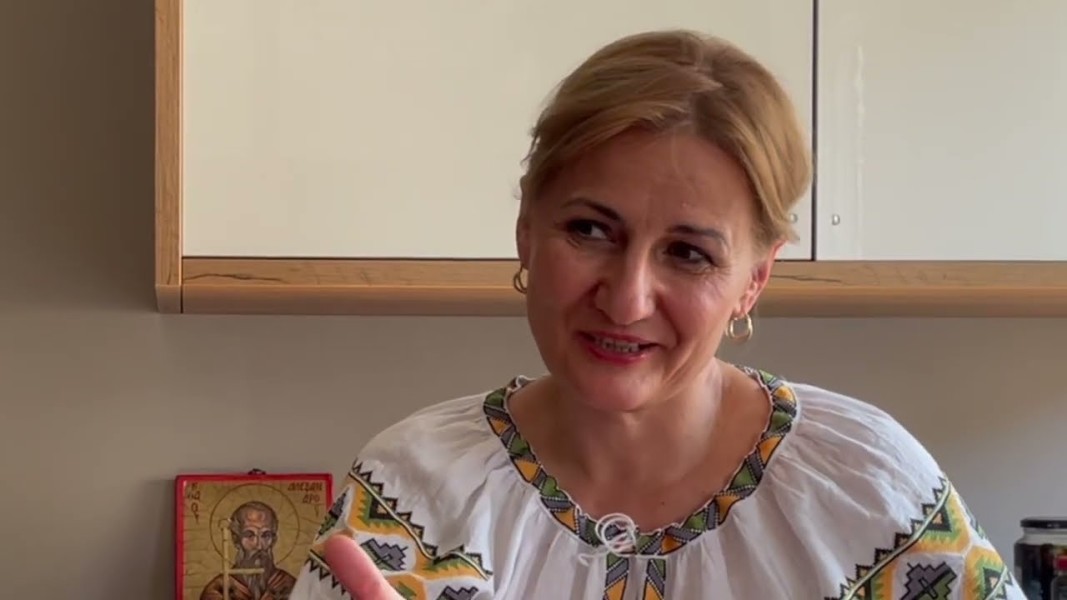Bulgarian community in Austria through the eyes of Martina Shopova-Yanev
As political news kept pouring in, connected with Bulgaria’s entry into the Schengen area and the conditions Austria sets down for this to happen, at the end of December, the premiere screening took place, at the Bulgarian cultural institute in Vienna Wittgenstein House, of the short films Poly Valenta from Vienna and I, mélange.
Stories dedicated to, inspired by and exploring the contemporary Bulgarian community in Austria. The two films by Martina Shopova-Yanev, in collaboration with the blog Melange Bulgaren, the oldest Bulgarian media outlet in Austria, are part of the project “Bulgarians in Austria – a 21st century portrait”. The films are already free to watch on YouTube and will be subtitled in English within weeks.
“The idea for them was born spontaneously after a conversation with editor Elitsa Tsenova in search for new and different ways of attracting more users,” says the author of the short films Martina Shopova-Yanev in an interview with Radio Bulgaria.
“I came here to feel a genuine bond with Bulgaria”
Martina herself has been living in Vienna with her family for seven years, and she feels she is part of the Bulgarian community there. “It is big enough for anyone to be able to find their own small Bulgarian family here,” she says.
“There is magic in Austria, and it is its geographic proximity. The distance from my house in Vienna to my home in Sofia is exactly 1,000 kms. – in our day, with all the waiting at borders, that is just a day’s drive away. And that is something that I believe means people never want to leave Austria. There is always something to come back for.”
“I am in Austria for the time being – and that’s how it’s been for 42 years”
According to data of the Austrian statistical office, as of 2023, there are 38,469 Bulgarians living in Austria, the biggest concentration being in Vienna – 22,552, followed by Tirol – 2,965 and Lower Austria – 3,041. The film I, mélange is a visual interpretation of the results of a survey, conducted among the users of Melange Bulgaren in the spring of 2023, and involving almost 1,000 Bulgarians. It does not lay claim to being a representative survey, says Martina, but adds that it has all the characteristics of being such a survey, and presents the profile of Bulgarians in Austria. And there were quite a few surprises.
“Yes, what surprised me was that it was so overwhelmingly “female”, most of the people who responded were women. Another thing that surprised me, and I would like to reference both films here, was that Bulgarians here are really and truly “polyvalent”. Most people I come in contact and meet with, and they come from different professional segments, do a lot of things simultaneously. And that is what runs through the entire history of contemporary Bulgarians in Austria like a red thread.”
“Being Bulgarian in Vienna is easy! It takes a lot of hard work to prove yourself, but success is not impossible”

That was how Martina Shopova found the character for her film Poly Valenta from Vienna – architect Paulina Vladimirova-Zipfel. Born in Haskovo, Bulgaria, she has a remarkable career, involving some of the most impressive sites in Vienna from the turn of the century, the film director says.
“There is a terrific Bulgarian community in Vienna. There are people working in art, in science, in politics. There are people who are very visible, people everyone from the community, and outside it knows. But what I was after was to find someone who is not high-profile, someone who, I believe, unites Bulgarians here in some way. I had several people in mind and Poly was one of them. The element that makes her a unifying figure is that, on the one hand, she has been here for a long time, and has been through so many trials and tribulations at university, as a mother, as a woman from a different culture, as a professional. In the story of her life many will see themselves, people who emigrated before Bulgaria’s accession to the EU. On the other hand, Poly is very active as a citizen. Thanks to people like her, more and more polling stations have been opened in Austria since 2016,” says Martina Shopova-Yanev.
“Whatever you may achieve abroad, you only have one native land”

In the film Poly Valenta from Vienna, architect Paulina Vladimirova-Zipfel talks about elections, civil society and her successes on the difficult path she has taken away from home. And she continues along this path. Talking to Radio Bulgaria, Martina hints at three other visual projects she has in mind. “Two of them are again connected with the Bulgarian community, but no longer in a Bulgarian context,” she says and goes on that she chanced upon interesting political times in Austria when she arrived at the end of 2016. She is interested in the domestic policy of the country she is living in, and which has been an important element for the development of her own country – Bulgaria in the past few months. But until her new projects become fact, she says her wishes for the new year are for more optimism and more curiosity. Because she firmly believes that curiosity is what propels us forward.
Translated and posted by Milena Daynova
Photos: Melange Bulgaren, Youtube /Melange Bulgaren
Students and teachers from two educational companies of the National Commerce and Banking High School won awards at the global business competition Youth Business Summit 2025 – US , organized by the US Headquarters of Educational Enterprises, the..
Is it possible that "Virtues and Religions" will be included in the curriculum and will be mandatory from 2026? This is a debate that has seen different points of view expressed in the last few weeks. "The introduction of mandatory..
A unique creative workshop "A Small Seed of Kindness" will open its doors on Palm Sunday, and its place is even more special - Garden "Inspiration" in the town of Bozhurishte near the Bulgarian capital. "I love coming here. Look at the smiles of..
April 8 is the day when Roma people around the world celebrate their identity. " International Roma Day is a time to show that we are part of the..
A unique creative workshop "A Small Seed of Kindness" will open its doors on Palm Sunday, and its place is even more special - Garden "Inspiration" in..
The opportunities for high-quality higher education in French in Bulgaria will be presented during an educational exhibition in Skopje...

+359 2 9336 661
